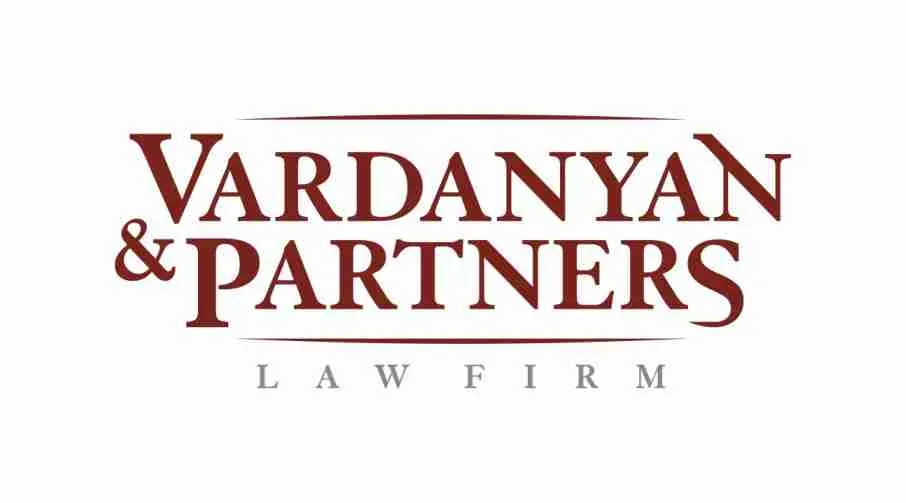The Netherlands has become a sought-after destination for investors and entrepreneurs seeking a better future for their families. This is due to its high quality of life, stable economy, and excellent education system. This article explores the pathways to residency or citizenship in the Netherlands, with a particular focus on the benefits of providing children with free or highly subsidized, quality education.
Residency by Investment
The Netherlands offers a residence permit program for foreign investors, often called the "Golden Visa" program. Launched in 2013, this program attracts non-EU investors to stimulate the Dutch economy. It allows individuals and their families to live and work in the Netherlands in exchange for a significant investment.
Requirements for Investor Residency
To qualify for the investor residence permit, applicants must meet the following requirements:
Requirement | Description |
|---|---|
Minimum Investment | Invest at least €1,250,000 in a Dutch company, special fund, venture capital company, or joint venture that invests in a Dutch company. |
Added Value | Demonstrate that the investment adds value to the Dutch economy by creating jobs, stimulating innovation, or bringing specialized knowledge or an international network to the Netherlands. |
Legitimate Source of Funds | Provide evidence that the investment capital was obtained legally. |
Clean Legal Record | Have no criminal record or immigration violations in the Netherlands. |
Residency Requirement | Maintain primary residency in the Netherlands, allowing a maximum stay outside the country for 8 out of 12 months. |
It is important to note that the Netherlands generally does not permit dual citizenship.
Application Process for Residency
The application process for both investor and entrepreneur residence permits involves submitting an application form and supporting documents to the Immigration and Naturalisation Service (IND). You may need to apply for a provisional residence permit (MVV) to enter the Netherlands if you plan to stay longer than 90 days. This depends on your nationality, so it's essential to check the IND website for specific requirements.
For the investor residence permit, the required documents include:
- Valid passport
- Biometric information
- Proof of income
- Investment plan
- Business plan or investment agreement
- Documentary evidence of the investment's added value
- Supporting documents demonstrating the investor's non-financial contribution
Your application will be reviewed by the IND, who will consult with the Netherlands Enterprise Agency to assess the investment's economic impact. The processing time for the application can take up to three months.
The initial residence permit is granted for 3 years and can be renewed for another 3 years. After 5 years of uninterrupted legal stay, you can begin the naturalization process for citizenship.
Benefits of Investor Residency
The investor residence permit grants the investor and their family the right to live, work, and study in the Netherlands. It also provides access to the Schengen Area, allowing visa-free travel to 26 European countries. After five years of continuous residency, investors may be eligible to apply for permanent residency or Dutch citizenship.
Residency for Entrepreneurs

In addition to the investor residence permit, the Netherlands offers a dedicated program for entrepreneurs seeking to establish innovative businesses in the country. This program, known as the "Startup Visa," allows entrepreneurs from outside the EU, EEA, or Switzerland to obtain a one-year temporary residence permit to launch their business.
Requirements for Entrepreneur Residency
To qualify for the Startup Visa, applicants must meet the following requirements:
Requirement | Description |
|---|---|
Innovative Business Idea | The proposed business must be innovative and introduce a new product, service, or technology to the Dutch market. |
Facilitator | Partner with an experienced facilitator who will guide and support the startup. The facilitator must meet specific criteria, including experience in guiding startups, financial stability, and no conflict of interest with the entrepreneur. |
Business Plan | Submit a detailed business plan outlining the startup's structure, activities, and potential economic impact. |
Financial Resources | Demonstrate sufficient financial resources to support themselves and their business activities during the one-year residency period. |
Application Process for the Startup Visa
As mentioned earlier, the application process involves submitting an application form and supporting documents to the IND, either directly or through the facilitator. You may also need to apply for an MVV for entry into the Netherlands, depending on your nationality.
For the Startup Visa, the required documents include:
- Valid passport
- Proof of financial resources
- Business plan
- Facilitator agreement
Your application will be reviewed by the IND, who will consult with the Netherlands Enterprise Agency to assess the business's innovation and potential economic benefit. The processing time for the application can take up to 90 days.
Benefits of Entrepreneur Residency
The Startup Visa grants the entrepreneur the right to live and work in the Netherlands for one year to establish their business. After one year, entrepreneurs can apply for a self-employed residence permit, which can eventually lead to permanent residency.
Furthermore, entrepreneurs can benefit from several tax incentives in the Netherlands, such as the "ondernemersaftrek" (entrepreneur allowance), which allows them to deduct a fixed amount from their annual gross profit, reducing their income tax burden. The Netherlands also has bilateral tax treaties with many countries to help businesses avoid double taxation.
The Dutch Education System
The Netherlands has a high-quality education system that consistently ranks among the best in the world. Education is compulsory in the Netherlands from the age of 5 to 18, or until a student receives a starting qualification. The Dutch education system is characterized by its diversity and focus on individual needs and talents.
Primary Education
Primary education in the Netherlands starts at age 4 and lasts for eight years. The curriculum covers a wide range of subjects, including Dutch, English, mathematics, science, social studies, and creative expression.
Secondary Education
At the age of 12, students enter secondary education, which is divided into three main tracks:
- VMBO (pre-vocational secondary education): 4 years, prepares students for vocational training.
- HAVO (senior general secondary education): 5 years, prepares students for higher professional education.
- VWO (pre-university education): 6 years, prepares students for university education.
Higher Education
The Netherlands has two types of higher education institutions:
- HBO (Universities of Applied Sciences): Offer practically oriented bachelor's and master's degree programs.
- WO (Research Universities): Offer research-oriented bachelor's, master's, and doctoral degree programs. These institutions are highly accessible to international students, with many programs taught in English.
Types of Schools
Within each level of education, there are different types of schools: public, special (religious), and general-special (neutral). Public schools are run by local governments, while special schools are often based on a particular religion. General-special schools promote equality between religions.
Challenges in the Education System
While the Dutch education system is highly regarded, it faces some challenges. There is an ongoing teacher shortage in the Netherlands, which could impact the quality of education. Additionally, the performance of Dutch students in international rankings, such as PISA, has been declining in recent years. These trends highlight the need for continued investment and reform in the education sector.
Financial Literacy Programs
The Netherlands also emphasizes financial literacy among children. Initiatives like the Money Wise Platform bring together experts from the financial sector, public administration, and the education system to promote responsible financial behavior through information, tools, and teaching programs.
Specific Programs and Initiatives for Children's Education
Beyond the formal education system, the Netherlands has specific programs and initiatives that support the education of children. The Van Leer Foundation, for example, focuses on early childhood development and supports programs that help young children thrive. Another initiative, HackShield, uses gamification and storytelling to teach children about cybersecurity and online safety.
Benefits of Education in the Netherlands for Investors and Entrepreneurs

- Free or Highly Subsidized Education: Public education in the Netherlands is free or highly subsidized for all residents, including children of investors and entrepreneurs. While public education is generally free, schools may request a voluntary parental contribution for extracurricular activities and school trips. This significantly reduces the cost of education compared to many other countries.
- High Quality: The Dutch education system is known for its high quality, ensuring that children receive a strong foundation for their future. This is reflected in high graduation rates and strong performance in international assessments.
- International Environment: The Netherlands has a diverse and international population, creating a welcoming and inclusive environment for children from all backgrounds.
- Multilingualism: Dutch children are generally proficient in English, and many schools offer bilingual programs. The Netherlands also ranks first in the EF English Proficiency Index. This provides children with valuable language skills and prepares them for a globalized world.
- Focus on Innovation: The Dutch education system emphasizes innovation and creativity, fostering critical thinking and problem-solving skills.
- Strong Foundation for Future Success: A Dutch education provides children with a solid foundation for their future academic and professional pursuits.
- Emphasis on Practical Skills: The Dutch education system focuses on practical skills and preparing students for the workforce. Universities of Applied Sciences, in particular, offer programs that are directly relevant to specific professions.
- Focus on Personal Development: The Dutch education system fosters personal development and independent learning. Students are encouraged to take ownership of their learning and develop their own opinions and ideas.
- Connection to the Labor Market: There is a strong connection between the Dutch education system and the labor market, ensuring that graduates are well-prepared for employment. This is achieved through partnerships between educational institutions and businesses, internships, and programs that focus on developing skills relevant to the needs of the economy.
Overall Benefits of Living in the Netherlands
In addition to the excellent education system, the Netherlands offers numerous benefits for investors and entrepreneurs:
- High Quality of Life: The Netherlands consistently ranks high in international quality of life surveys, with factors such as safety, healthcare, and work-life balance contributing to its appeal. The country has a well-developed healthcare system with universal health insurance coverage.
- Stable Economy: The Netherlands has a stable and diversified economy, providing a secure environment for investment and business development.
- Excellent Infrastructure: The Netherlands has a world-class infrastructure, including modern transportation networks, efficient logistics, and advanced digital connectivity.
- International Business Environment: The Netherlands has a long history of international trade and a welcoming business climate for foreign investors.
- Multicultural Society: The Netherlands is a tolerant and multicultural society, with a diverse population and a welcoming attitude towards expats.
- Investment in Innovation: The Dutch government actively invests in innovation through public-private partnerships and various initiatives. This fosters a dynamic business environment and supports the development of new technologies and industries.
- 30% Ruling: The Netherlands offers a tax advantage called the "30% ruling" for highly skilled migrants. This ruling allows eligible individuals to receive 30% of their gross salary tax-free for a certain period, making it a significant benefit for investors and entrepreneurs.
- Real Estate Investment: Foreigners can freely buy and sell property in the Netherlands. The Dutch real estate market has been relatively stable, making it an attractive option for investment.
However, it's important to be aware of the childcare gap in the Netherlands. While there is paid parental leave, there can be a waiting period before children are eligible for free early childhood education. This can be a challenge for working parents.
Dutch Culture and Business Climate
The Dutch business climate is characterized by reliability, direct communication, and an egalitarian approach. Punctuality and honesty are highly valued, and the Dutch have a strong work ethic. Communication is generally straightforward and to the point, which can sometimes be perceived as blunt by people from other cultures. The workplace culture is often informal, with a flat hierarchy and an emphasis on independent work.
Conclusion

If you are an investor or entrepreneur seeking a new home for your family and prioritize providing your children with a high-quality education, the Netherlands offers a compelling proposition. The residency programs, combined with the excellent education system and overall benefits of living in the Netherlands, make it an ideal destination for families seeking a secure and prosperous future. By investing in the Netherlands, families can provide their children with access to free or highly subsidized, quality education, setting them up for success in a globalized world.

Lusine Sargsyan
Attorney
